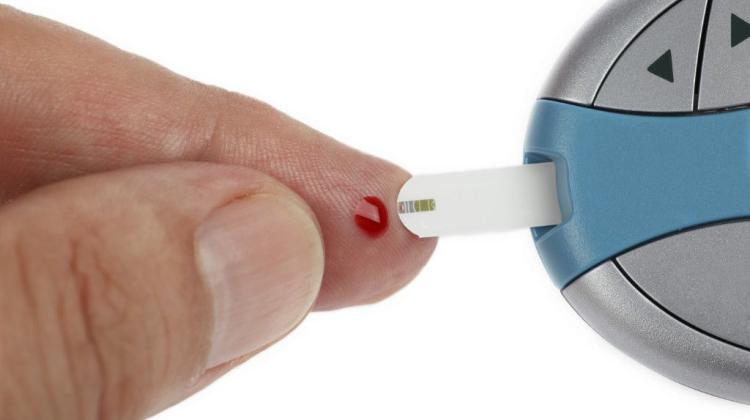Monogenic diabetes under control

Monogenic diabetes, which affects 5 percent diabetics, can sometimes be treated more comfortably than typical diabetes - in some cases, treatment with insulin can even be stopped. A team of researchers from Łódź managed to identify the world\'s largest group of children with this form of the disease.
Dr. Wojciech Fendler from the Department of Pediatrics, Oncology, Hematology and Diabetology, Medical University of Lodz, spoke about Polish study of monogenic diabetes in an interview with PAP. The scientist was one of this year’s two scholars of the START programme of the Foundation for Polish Science, who received top scores.
"Monogenic diabetes is a form of diabetes caused by a specific genetic defect. In Poland there are about 2.5 million diabetic patients. About 5 percent of them are people, who developed diabetes not because they were insulin-resistant or had a wrong lifestyle, but due to a specific genetic defect" - explained the young scientist.
According to the researcher, identifying the genetic defect that causes diabetes allows to treat the disease optimally, know what to expect, and predict the likelihood of diabetes in children of such persons. "In some cases of monogenic diabetes, insulin therapy can be stopped in a child - noted the researcher. - In some cases, for example, treatment can be changed to oral medications". Patients benefit from this: the treatment is milder and can produce various kinds of beneficial results beyond diabetes, and it is much cheaper for both the patient and the National Health Fund. He added that in certain subtypes of this disease, treatment change can improve the functioning of the central nervous system.
"In our project, we covered the whole country with genetic screening, starting with the pediatric group. We decided that this form of diabetes would be easier to identify in children" - said Fendler. He explained that the team of Prof. Wojciech Młynarski from the Department of Pediatrics, Oncology, Hematology and Diabetology, Medical University of Lodz, studied children with diabetes to find those, in whom the disease could be caused by genetic mutations. "This allowed to recruit about two thousand persons. From among them, we selected those, whose genetic background of the disease was most probable. Thus, we identified the world\'s largest group of children with monogenic diabetes" - noted the scientist.
According to Dr. Fendler, some of these people have stopped insulin treatment. In addition, follow-up monitoring is carried for possible complications and analysis of the physiology of diabetes. "We also carry out a number of other actions related to the links between diabetes and other diseases" - he added. He noted that tests are free of charge for patients - they are performed within the framework of the team’s research projects.
Dr. Fendler explained that while patients who wished to be screened could contact Prof. Młynarski’s team themselves, the researchers intended to address their activities primarily to physicians. "Our idea was to inform physicians of the details of this unusual form of diabetes. We want them to refer selected patients to us. We need a certain screen to objectively assess the disease and order more tests" - he said.
"For an inexperienced doctor, who does not know what to look for, finding the individual case is very difficult. Our program includes an information campaign. Doctors learn how to identify unusual patients, and where to refer them. It works. We already cooperate with various centres abroad, we have patients referred from other countries. We try to work with other centres, so that the program covers as many people as possible" - he described.
In the team, Dr. Fendler is responsible for statistical analysis, fundraising, research planning and education of members. "I try to be a force when it comes to preparing staff and forming a group of medical scientists at the university" - he explained.
START Scholarships of the Foundation for Polish Science have been awarded this year to 127 young researchers. The stipend amount is PLN 28 thousand, but with funds obtained by the Foundation from contributions to public charities (1% of personal income tax), Dr. Fendler’s stipend could be increased to the amount of PLN 36 thousand.
PAP - Science and Scholarship in Poland, Ludwika Tomala
lt/ agt/ tot/ mrt/
Przed dodaniem komentarza prosimy o zapoznanie z Regulaminem forum serwisu Nauka w Polsce.
















